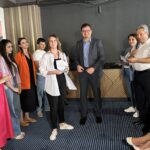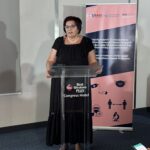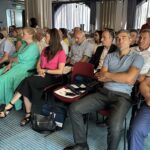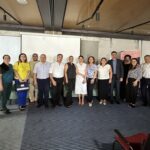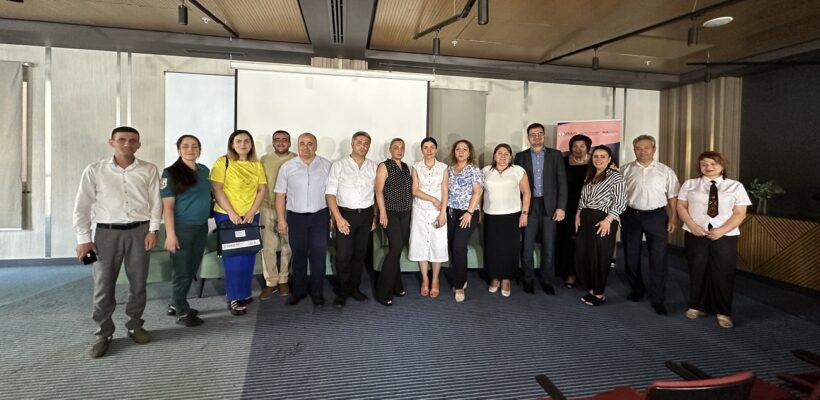
CHS Empowers Communities By Strengthening Emergency Preparedness and Response Capacity
2 min read
YEREVAN, Armenia — The Community Support component of the USAID-funded “Support to Control COVID-19 and Other Infectious Disease Outbreaks” project has made significant strides in Armenia. Collaborating with three partner organizations — the Disaster Risk Reduction National Platform, the Martuni Women’s Community Council, and the Armavir Development Center — the project has bolstered the resilience of selected consolidated communities. Over an intensive 11-month period, the project has implemented various activities to enhance the communities’ emergency preparedness and response capabilities during times of public health crisis.
The four consolidated communities of Areni, Amasia, Chambarak, and Berd, with a combined population of approximately 65,500, were selected as beneficiaries of this initiative. The project started with an exhaustive needs assessment that meticulously appraised the existing vulnerabilities and needs of each community. This diagnostic procedure served as a foundation for developing the interventions that sufficiently address the identified unique challenges.
One of the key achievements under this component has been the establishment of Rapid Response teams. These teams have undergone rigorous training on different health topics, including disaster risk management, first aid, emergency risk communication, and the development and implementation of emergency preparedness and response plans. By equipping local individuals with these essential skills, the project is empowering communities to take prompt and effective action during crisis situations of public health concern.
The communities’ Disaster Risk Reduction plans were revised and enhanced with the inclusion of a novel component that addresses emergencies of public health concern. Furthermore, different scenarios were developed appropriate to emergency situations of public health concern, and drills were subsequently conducted with community leaders and residents.
Further, mapping of local non-governmental organizations (NGOs) was completed to guide their capacity strengthening. The ensuing training initiatives were launched accordingly, augmenting the ability of NGOs to engage with communities and provide targeted support. These efforts are integral to ensuring sustainable community-level preparedness beyond the project’s scope.
A pivotal aspect of the Communities Support endeavor has been the gratuitous allotment of equipment and supplies to local schools, kindergartens, and medical facilities. The distribution of these vital resources is integral to better preparing community institutions, enabling them to cope with health emergencies more effectively. This investment enhances immediate response capabilities and promotes long-term community resilience.
A conclusive event on July 27, 2023, organized by project partner “Disaster Risk Reduction National Platform” Foundation and with presentations delivered by project partners Martuni Womens’ Community Council NGO and Armavir Development Center NGO, marked the culmination of the Communities Support component. The event served as a platform to share accomplishments and lessons learned and was attended by stakeholders from the government, partner organizations, and the local community. The synergy among all stakeholders showcased a united front for fighting against infectious diseases, exhibiting a strong collaboration for future action. The event also included an acknowledgment component where young volunteers who had worked in all four communities were granted certificates of appreciation.
As the project nears its end, the Communities Support component stands as a testament to the power of cooperation and proactive planning. By engaging with local communities, enhancing their capacities, and fostering collaboration, the project contributed to a more prepared and resilient Armenia in the face of infectious disease outbreaks.
The AUA Turpanjian College of Health Sciences works actively to improve population health and health services in Armenia and the region through interdisciplinary education and development of health professionals to be leaders in public health, nursing, health services research and evaluation, and health care delivery and management.

